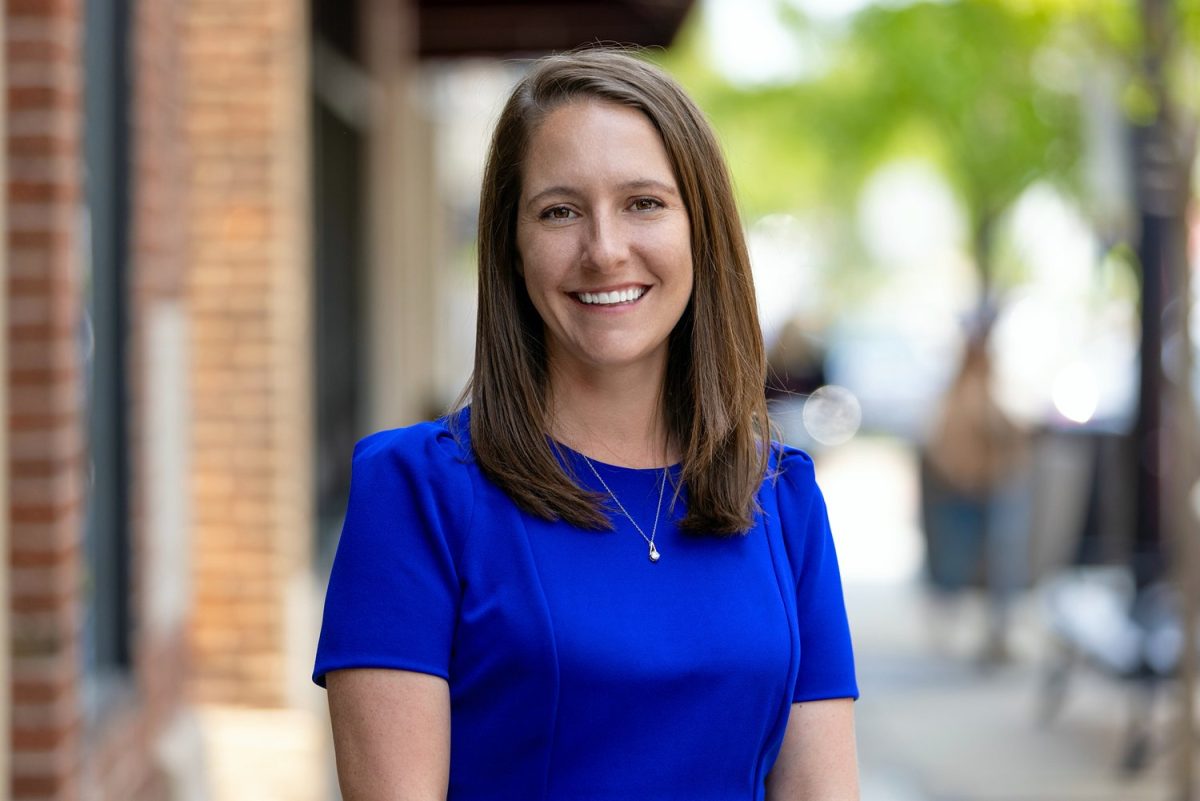This Q&A is a part of Central Times’ 2025 city council election coverage. To see interviews with all candidates in the race, click here. This interview has been edited for length and clarity.
Why are you running for Naperville City Council?
So, I ran for Park District in 2021. I live in Naperville, I have young kids, and I saw a picture of the park board in the newspaper, and it was six men and one woman. And I just kind of thought, bringing my kids to all these classes, we could probably use the perspective of a young woman, a young parent on the board. So I ran in 2021, was honored to be elected. It’s been really great. The Park District is one of the things that makes Naperville such an amazing city.
As my term was coming to an end — their four-year terms are just like City Council — I started thinking about whether I wanted to run for Park District again, run for something else, or step away. And with a lot of big issues before the city, especially our IMEA contract coming up, I decided I was going to run for City Council instead so that I could bring a new perspective to the council.
Can you tell me more about your personal and professional background and how it prepares you for this role?
Professionally, I worked as a director at a data analytics firm. I advised Fortune 500 companies, nonprofits, and government agencies on unforeseen risks, strategic opportunities, and consumer sentiment. It actually feels a lot like governing — you’re listening to people, looking ahead to the future, and trying to make smart, informed, data-driven decisions.
Academically, I have an undergraduate degree in political science and history from the University of Dayton, a master’s in social science from the University of Chicago, a certificate in public policy analysis from the London School of Economics, and a certificate in civic leadership from Northern Illinois University. I find public policy really fascinating. I think it’s important to have both real-life experience and the academic background to evaluate best practices and make informed decisions rather than relying on instinct alone.
What life experiences have shaped your perspective on local government and public service?
Recently, I was accepted into an international program called the American Council of Young Political Leaders. It’s sponsored by the State Department and a nonprofit group, ACYPL. They bring together young political professionals from different backgrounds and perspectives for political and cultural immersion trips. In January and February, I went to Tunisia and Morocco with six other young American political professionals. We met with government officials, nonprofits, and business leaders to hear about their experiences and challenges.
It was really amazing, not just because of the intercultural experience, but also because our American delegation was diverse. We had different baselines on policy issues, but we were able to have civil conversations and understand each other’s perspectives in a professional, respectful way. That experience was really impactful.
What unique skills or insights would you bring to City Council?
One of the reasons I believe I was chosen for that trip is that I have a lot of experience working with people from different backgrounds and perspectives. I also facilitated a book group at Anderson’s Bookshop called the Open Discussion Project for four years. It was a national initiative to bring people with different perspectives together to discuss hot policy topics in a civil way, with the goal of understanding each other rather than changing opinions.
For four years, we had these discussions in Naperville, and it was really amazing. I think people are craving those conversations — to talk about important issues without getting defensive or combative. I’ve also been unanimously elected Park Board President three times in a row. I value everyone’s perspective, and while we might not always agree, I respect everybody’s right to hold their own views.
What are your long-term plans for Naperville, and what specific issues are you advocating for?
One of my main concerns is the early renewal of the IMEA contract. The proposed timeline runs through 2055, and I don’t think that makes sense. I think technology changes so quickly that locking ourselves into a deal that far in advance isn’t in the city’s best interest. The process feels rushed, and I think Naperville residents deserve a more thorough evaluation of our options.
Another priority for me is government transparency and accountability. I believe accessibility is a huge part of that. I’ve heard a council member refer to “my constituents” as if they only represent the people who voted for them. But City Council represents all of Naperville. There are no “my constituents” and “your constituents” — just Naperville residents. That mindset of division leads to polarization on the council and in the community.
Accountability is also important when it comes to follow-through on council decisions. For example, the Sustainability 2036 Plan was adopted unanimously, yet the last public update I could find was from December 2022. If the council votes on something, we need to ensure it actually happens rather than just becoming a talking point.
How do you plan to involve residents in decision-making processes and ensure their voices are heard?
That’s one of my favorite things about being on the Park Board — involving the community. We have a lot of open houses and forums, and I’ve always been accessible by email. Residents attend our meetings, and I really value their input. That experience has shown me what works, and I would continue that approach on City Council.
Is there anything else you’d like to add?
Well, my final message is to encourage young people to vote. This is your town, and your voice absolutely matters. You are inheriting the decisions made today, so get involved and make your voices heard.



